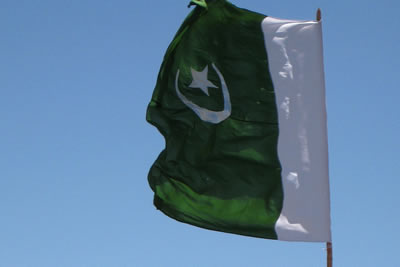
According to the article, based on documents released illegally by Edward Snowden, “No other nation draws as much scrutiny across so many categories of national security concern.” Most of the concern revolves around Pakistan’s nuclear weapons and whether they are safe and secure. The article notes that the realization that Osama bin Laden resided for six years within a half-mile of the Pakistan military’s premiere defense academy has increased fear within the U.S. intelligence and policymaking community that al-Qaeda could eventually gain access to Pakistan’s nuclear weapons.
Whether bin Laden was able to evade Pakistani detection or enjoyed some level of protection from within the military establishment, both scenarios are equally worrying when assessing the security of Pakistan’s nuclear arsenal.
Yesterday’s article shows that the threats to U.S. national security emanating from Pakistan are growing. While al-Qaeda may be less able to conduct a logistically complicated attack like 9/11, the group has shown that it is adept at exploiting political instability in Pakistan and derives benefits from a security environment like that in Pakistan, where terrorists are selectively targeted.
So long as Pakistan continues to tolerate activities of some terrorist groups on its territory, it will create a permissive environment for all terrorists in the country. Because the various terrorist groups share training camps, recruit from the same madrassahs (religious schools), cooperate on logistics, and draw funds from the same private supporters, it is unreasonable to think you can allow some terrorists leeway and rein in others.
The amount of money we are spending on collecting intelligence in Pakistan and the fact that we continue to launch drone attacks in its tribal border areas—albeit at a slower rate—indicates that there is still a significant threat from Islamist extremists in Pakistan that the Administration avoids discussing publicly.
Another reminder of U.S. differences with Pakistan when it comes to fighting terrorism is the continued stalemate over the fate of Dr. Shakil Afridi, who helped the CIA track Osama bin Laden’s whereabouts. The Pakistan courts recently overturned a 33-year prison sentence for Dr. Afridi, who has been in jail since May 2011.
If Pakistani officials want to show they are on the same side as the U.S. in the fight against global terrorism, they will take a less dim view of Dr. Afridi’s assistance in tracking the world’s most wanted terrorist and ensure that any retrial is speedy and fair.
It is time for the Administration to speak more forthrightly on the dangers Pakistan’s permissiveness toward terrorists of any stripes poses to global security. And until Pakistan gets a better handle on the terrorist threat in its country, it must be prepared to face the scrutiny of U.S. intelligence and doubts about its ability to secure its nuclear program.
Source material can be found at this site.









